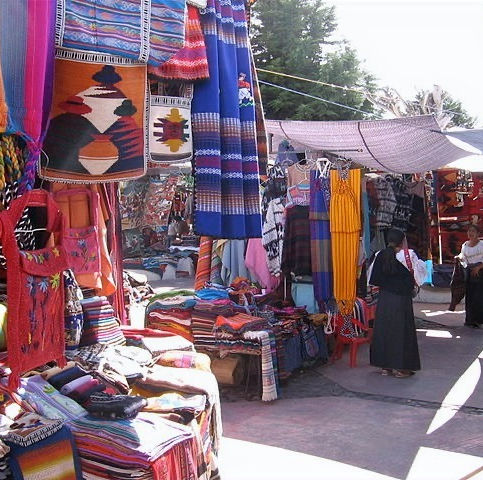Our Story
Ever since he was a little boy, Jacinto Anguaya has been part of his family’s small business. He comes from the mountains of Otavalo, Ecuador and a long line of Indigenous entrepreneurs and musicians - of which he is both. His music is what brought him to Canada, but meeting his wife Jill is what made him decide to stay. Together, they founded Quichua Crafts Inc. and have been connecting people with the vibrant, colourful and traditional products of Ecuador since 1994.


Sustainability
After being self employed as a retail store owner in Ottawa for many years, Jacinto began to seek more variety for his shops.
He traveled to India, Thailand, Bali and Nepal to meet other hand crafters and support small, often indigenous led, businesses who also focus on using traditional skills to create job opportunities for themselves and their communities.
Another main intent was to establish relationships with like-minded entrepreneurs who care about the environment
and the people who create the products they sell.
By establishing these relationships long ago,
Quichua World Market is now able to offer a wide selection of hand crafted products without the need for
an abundance of back and forth travel.
Our supplier Ark Fair Trade is fair trade certified and supports Tree Canada by planting trees to offset their travel to and from Nepal.
The Artisans
We respect people as much as we respect the planet.
Over the years, our collections have mainly been sourced from Ecuador and Nepal. While we started our own importing long before Fair Trade Certification existed, we have always set out to support small business people directly, by buying the items they create directly from them, at the prices they set.


The Fabrics
Crafted from recycled and sustainably grown fibers.
Cotton, wool, silk, rayon - the goal has been to offer our customers many natural alternatives to add to their homes and wardrobes. We support crafters who create goods that are organic, unbleached,
up-cycled and recycled.
We look for every opportunity to continue to support artisans who use traditional skills such as weaving, sewing, knitting, crocheting, beading and embroidering to create the products they sell for a living.
That's how we do our part to keep these
practices and cultures alive.


